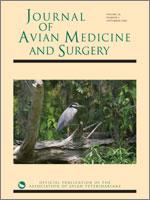The order Passeriformes comprises the largest number of families and species of birds of any avian order. Brazil is rich in passerine birds, which are a common victim of wildlife trafficking in Brazil. Annually, many birds die as a consequence of illegal trade. To investigate the occurrence of the principle diseases and to identify the main causes of death in smuggled passerine birds, the cause of death was evaluated in 360 passerine birds confiscated within the city of São Paulo, Brazil. Causes of death were determined by anatomopathologic and microbiologic studies. Infectious diseases were the cause of death of most birds, which corresponded to 78.6% of cases. The most common infectious diseases were poxvirus infection, aspergillosis, and coccidiosis. Although the etiologic agents of these diseases can coexist asymptomatically within hosts, once the host's immunity is compromised, the pathogen multiplies quickly and causes disease. The results of this study may help to improve the care of passerine birds in captivity and increase the survival rate of confiscated birds. Results may also be useful for in situ conservation programs that investigate the reintroduction of confiscated species or captive birds.
How to translate text using browser tools
1 September 2010
A Survey of Diseases in Passeriform Birds Obtained From Illegal Wildlife Trade in São Paulo City, Brazil
Silvia Neri Godoy,
Eliana Reiko Matushima
ACCESS THE FULL ARTICLE
Avian
avian pathology
illegal wildlife trade
Passeriformes
passerine birds
wildlife trafficking





